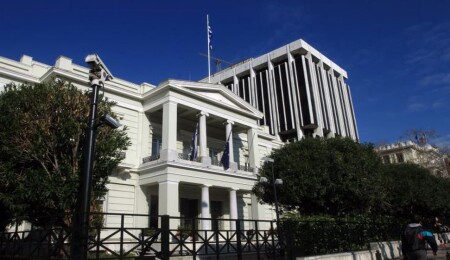Greece’s Credit Rating Kept at BBB with Stable Outlook

Rating agency Morningstar DBRS has confirmed Greece’s long-term issuer ratings for foreign and local currency debt at BBB.

At the same time, the agency affirmed the country’s short-term issuer ratings for both foreign and local currency debt at R-2 (high).
The report also noted that all ratings carry a stable outlook.
The agency explained that the stable outlook reflects its view that short-term risks to Greece’s credit ratings are balanced.
It pointed out that the Greek economy grew by 2.3 per cent in 2024, a performance significantly above the euro area average of 0.9 per cent.
The European Commission is forecasting a similar rate of growth for Greece in 2025.
According to Morningstar DBRS, robust domestic demand has been the main driver of Greece’s GDP growth.
This strength stems largely from healthy gains in employment and investments funded through the European Union.
The strong economic expansion, combined with recurring primary budget surpluses, has underpinned a steady decline in the debt-to-GDP ratio.
The European Commission expects Greece’s debt ratio to fall to 141 per cent of GDP by 2026, down from 164 per cent in 2023.
The agency cautioned, however, that Greece’s economic performance remains partly vulnerable to external risks, as is the case with other EU economies.
It stressed that any further deterioration in the geopolitical or global trade environment that reduces external demand will inevitably affect Greece’s exports and the wider economy.
Morningstar DBRS said that Greece’s BBB ratings are supported by its credible policy framework and by its membership of the European Union and the euro area.
It added that successive Greek governments have implemented key reforms that strengthened governance, improved the business climate and enhanced debt sustainability.
The agency further emphasised that strong political commitment across the major political parties to prudent fiscal policy continues to bolster the country’s credit profile.
The International Monetary Fund projects that Greece’s primary budget surplus will average 2.4 per cent of GDP through the end of the decade, while public debt is expected to decline to 125 per cent of GDP by 2030.
Despite these positive trends, the ratings remain constrained by Greece’s still high public debt, the relatively small size of its economy and its persistently large current account deficit.
Morningstar DBRS explained that an upgrade of Greece’s credit ratings could take place if there is a further substantial reduction in the public debt ratio, supported by sustainable primary surpluses, or if reforms continue to boost investment and strengthen long-term growth prospects.
On the other hand, the agency warned that ratings could be downgraded if fiscal discipline were to weaken for a prolonged period or if contingent liabilities materialised, pushing public debt onto a firmly upward trajectory.
A reversal of structural reforms or a significant deterioration in Greece’s external position would also weigh negatively on the ratings.












Yorumlar
Dikkat!
Suç teşkil edecek, yasadışı, tehditkar, rahatsız edici, hakaret ve küfür içeren, aşağılayıcı, küçük düşürücü, kaba, müstehcen, ahlaka aykırı, kişilik haklarına zarar verici ya da benzeri niteliklerde içeriklerden doğan her türlü mali, hukuki, cezai, idari sorumluluk içeriği gönderen Üye/Üyeler’e aittir.